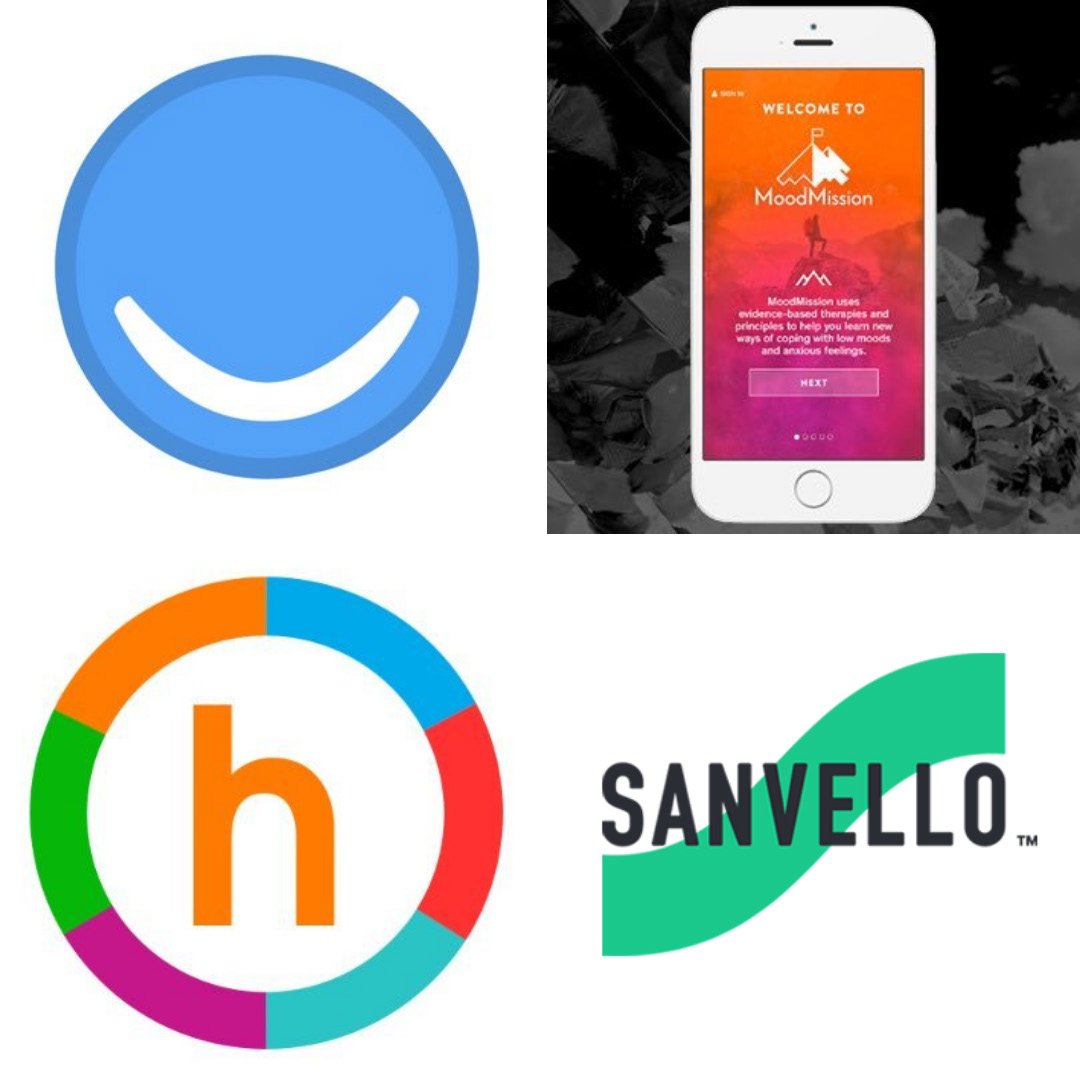Pictured Above: These four apps offer a variety of mental health resources for smartphone users.
Courtesy of Sanvello, Happify, MoodMission and MoodFit on Twitter
By Catherine Hicks
Although studies show approximately 85 percent of college students struggle with their mental health, many are reluctant to seek out treatment due to a lack of accessibility, busy schedules or the cost of treatment.
Mental health apps can be a useful tool for bridging this gap in treatment, as in 2019, 96 percent of Americans aged 18-29 owned a smartphone, according to the Pew Research Center.
Research from Harvard University shows that mental health mobile apps have “significant potential to deliver highly efficient mental health interventions,” if they have four specific characteristics: high patient-engagement, simple user-interface, capabilities to treat multiple mental health conditions and self-monitoring features.
There are more than 10,000 mental health related smartphone apps on the market, which can make it overwhelming and difficult to know if an app is best for your situation or if investing in a premium subscription is worth it.
Some mental health apps target specific mental health diagnoses such as anxiety or depression and utilize methods from cognitive behavioral therapy (CBT) and mindfulness to alleviate symptoms. Though apps can be helpful, they are often more effective when paired with individual therapy and studies show their effectiveness is limited in severe cases.
Below are four smartphone apps that adhere to the four characteristics identified by Harvard University:
- Sanvello
Sanvello teaches CBT techniques, mindfulness skills and provides mood and health tracking. The free app also offers guided journeys based on your personalized therapy goals, such as feeling happier, being more positive or having more hope. Sanvello also offers a communities feature that enables users to interact with each other anonymously. One of the offered communities targets students.
Sanvello has individual therapy through some health insurance plans or self-pay, at the rate of $140 for the initial session and $85 for each following session. They also have premium content and coaching sessions for $50 a month or $350 a year.
- Happify
Happify appeals to the fun-loving side in everyone by offering mobile games. The games were designed by positive psychology experts who are familiar with CBT methods and are designed to reduce stress, build resilience and overcome negative thoughts. The app also offers tracks, such as coping better with stress or conquering negative thoughts, which allow you to choose a skill or goal you’d like to work on.
Happify is free for some content, but they also offer plans starting at $14.99 a month, which grants premium users with access to an expanded library of activities or games that can be accessed through either smartphone, tablet or computer.
- MoodMission
Through a series of six surveys that each take roughly five minutes, the free app MoodMission gathers data to recommend “missions” based on how the user is feeling. Missions can include emotion-based activities such as breathing exercises, behavior-based activities like learning a new hobby, physical-based activities such as physical activity, or thought-based activities such as learning how to reframe negative thoughts. The app is developed by mental health professionals and utilizes CBT techniques to assist those struggling with stress, anxiety or depression.
- Moodfit
Moodfit is also based on CBT techniques. The free app uses a questionnaire to determine what kind of symptoms are being experienced, and recommends articles and audio files that can help users better understand their emotional experiences. The app also offers a mood tracker that allows you to understand what types of things affect your feelings personally; how many hours of sleep a night put you in an ideal mood? What medications change the way you feel? How do your eating or exercise habits affect your emotions?
Each of these four apps can be useful tools for assisting people who feel they need a little assistance being mindful of their mental health. For those struggling with mild to moderate symptoms of mental illnesses, apps can provide relief but should not be used to fully replace therapy, especially in severe cases.



